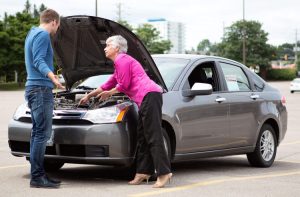
A home inspection is essential for buyers and sellers to know the true condition of the property. This is especially true?when a casual viewing pass can result in problems going unnoticed. Learning what a home inspector will look for offers peace of mind, and it helps one make an informed decision when buying a new house or preparing to sell it.
A home inspector in Palm Coast provides a systematic examination of a property, encompassing everything related to its?structure, safety, and functionality. The home must meet minimal standards, as they only assess components that are visible and accessible before any transaction can take place.
Structural Integrity and Foundation
The foundation is the?core of every house. Inspectors examine for cracks, ?uneven setting, water, and other impacts that could weaken it structurally. A solid?foundation ensures that whatever structure is built above it is solid and safe.
As part?of the inspection, the professional needs to:
- Look?for gaps or evidence of displacement in foundation walls
- Look for Signs of Moisture or Pests?in Crawl Spaces
- Look for Floor Foundations: This can be a floor or partial level that drops, indicating foundation movement.
- Minor cracks or signs of moisture intrusions?may be a sign that greater issues exist beneath the surface.
Roof and Exterior Condition
They then inspect the roof, which is important to examine because it protects the property from damage caused by rain, wind, and sunlight. The expert inspects the shingles, flashing, gutters, drainage systems, and other components. The longevity of a roof may be affected by missing tiles, corrosion, or improper drainage.
And?you even pay careful attention to the outer walls. Things like peeling paint, an?oak rotting, or torn siding may be an indication of moisture coming in or a lack of proper upkeep. The inspector also checks the grading near the house to ensure water runs away from the building.
A Palm Coast home roof and exterior inspector will note the impact of humidity and the coastal climate. It also assists homeowners in identifying areas that require precautionary maintenance before they incur significant damage.
Plumbing and Water Systems
One essential component?of any inspection is the plumbing system. Inspectors check exposed pipes, fixtures, and water heaters for signs of leaks, corrosion, or low pressure. They also ensure?drainage efficiency and test the functionality of all bathrooms, kitchens, and outdoor connections.
Common areas reviewed include:
- Water lines and joints that are?obvious
- Faucets and drainage speed.
- Hot water system performance.
- Early detection is also important, since small leaks can result in extensive water waste or damage over time.
Electrical Systems and Safety
A well-designed electrical system creates a safety barrier against shocks or fire hazards for homeowners. It inspects panels, wiring, grounding, and visible outlets. They assure you that all installations are?up to general safety standards.
Checks include:
- Identifying circuits?correctly.
- Securely fitted outlets and switches.
- Grounded enough to prevent surges or shocks.
- If the property has older wiring or older panels,?recommendations are frequently made for updates or repairs.
Heating,?Ventilation, And Air Conditioning (HVAC)
The comfort we experience in a house is largely due to a well-maintained HVAC system. Inspectors verify that the heating and cooling units are functioning properly, that the filters are clean, and that the ductwork is free of obstructions and leaks.
The review typically involves:
- Checking thermostat function.
- Checking external furnace and air?conditioner parts.
- Measuring airflow and ventilation balance.
- Ventilation is essential for maintaining both air quality and energy efficiency throughout the home.
Interior Elements and Safety Features
They inspect the ceilings, floors, doors, and windows inside the home. They?then search for even surfaces, cracks, or water. Working locks, secure handrails, and windows that open and close without breaking help keep your home or business safe.
Presence and functionality of smoke detectors, carbon monoxide alarms, and fire extinguishers. Therefore, it can be confirmed that safety standards are maintained for both occupants and future residents.
Insulation and Attic Review
The quality of insulation plays a crucial role in energy conservation. Checking insulation levels between?walls and in the attic. In addition, ventilation-related issues, which will lead to mould growth?or heat retention problems, are also being checked.
Key areas reviewed include:
- Insulation depth and condition.
- Adequate airflow between roof vents.
- Signs of pests or moisture?intrusion.
- Good insulation?lowers energy cost and keeps in climatic comfort at the same level throughout.
Exterior Grounds and Drainage
The landscape?surrounding the home. Driveways, walkways, fences, and retaining walls are also part of the external inspection. Well drainage patterns are assessed to prevent water accumulation at the?foundation.
Site drainage issues or poor grading can lead to soil erosion or saturation. Periodic examination of outdoor areas also helps prevent permanent structural damage.
Conclusion
A comprehensive inspection report helps shed light on the actual?condition of the property. It prepares buyers for a specific negotiation, and it also allows sellers to ensure their sale proceeds as planned. Both parties need an accurate insight into the property’s condition, and this is provided by the areas that a home inspector in Palm Coast focuses on.
A home inspector Palm Coast inspects at an operative level?all vital systems, including structural, electrical, plumbing, and environmental factors. This type of expert assessment protects investments and ensures secure, high-quality properties for everyone.





